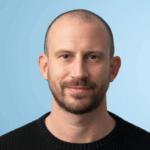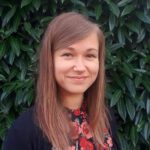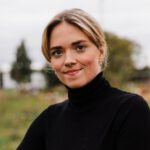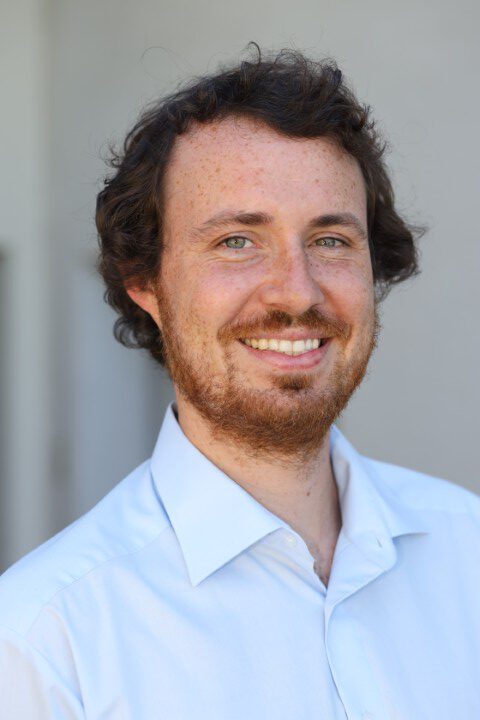SEEP Graduation
Cohort
Career
SEEP Alumni Story | May 12, 2025
Roman Hausmann
Building Transformative Futures Through Research and Teaching
Roman Hausmann speaks with the calm clarity of someone who knows where he’s going, and more importantly, why. A SEEP alumnus and now a postdoctoral researcher and lecturer, Hausmann embodies the very spirit of the Socio-Ecological Economics and Policy (SEEP) program: critical, interdisciplinary, and deeply engaged with society’s most urgent transformations.
After earning his bachelor’s degree in International Relations at Rhine-Waal University in Kleve, Germany – an education he found too restricted in its neoclassical economic perspective – Hausmann sought out a master’s program that would challenge dominant paradigms. “I was looking for something more critical,” he recalls. “SEEP was exactly that.” Moving to Vienna with his partner and newborn daughter, he began the program in 2016 and never looked back.
Today, Roman is a researcher at the Institute for Ecological Economics at WU Wien and recently completed his PhD on community-led initiatives and participatory governance. This July, he begins a new chapter as a senior lecturer at Modul University’s School of Sustainability, Governance, and Methods. It’s a fitting next step for someone who sees teaching as a vital tool of impact: “Programs like SEEP offer an education in economics that is heterodox, politically informed, and socially relevant. That’s crucial.”
From Grassroots to Governance
Hausmann’s research delves into the messy, real-world processes of socio-ecological transformation. His focus has shifted over time – from grassroots and civil society initiatives to participatory policy and governance models – but his commitment to bottom-up change has remained constant. “I try to do research that also helps civil society,” he says. “But it’s not always easy to create tangible impact. That’s the challenge of critical research.”
Still, he remains optimistic. He credits SEEP with giving him the theoretical grounding and freedom to pursue this work. “SEEP has a holistic approach to understanding societal change,” he explains. “It prepared me really well for a PhD, more than many other master programs would.”
Life as a SEEP Student – And a New Parent
Roman began SEEP just three months after the birth of his first child – what became affectionately known among classmates as “the SEEP baby.” He and his partner, who was also enrolled in SEEP, juggled lectures, research, and diapers. “Most course instructors were open and flexible. We even brought the baby to class sometimes,” he laughs.
Looking back, he sees those years not just as academically formative, but also personally transformative. “We had no family in Vienna, so it was tough. But we managed. Somehow, we just did it. And SEEP helped make it possible.”
Part of what made it all work, Roman says, was also Vienna itself. “It’s simply a great place to live – not only liveable, but vibrant and full of opportunities,” he reflects. Beyond quality of life, Vienna’s strong academic and activist scene also played a role in his decision. “Being in a city where multiple universities and institutions are engaged in critical research, and where you can be part of political and climate movements – that really enriches the SEEP experience. It’s not just the program, it’s the whole environment.”
On the Value of SEEP – and Advice for Aspiring Academics
To current SEEP students contemplating a similar path, Roman offers both inspiration and pragmatic advice: “Be proactive. Reach out to researchers early. Become a tutor or assistant if you can. Often, there’s this perceived barrier to entry – but in reality, this institute is very open. People here appreciate student engagement.”
His own journey – carefully planned and passionately pursued – reflects that advice. From student to tutor, PhD candidate to postdoc, Roman has stayed the course, building his career in tandem with a growing family.
And what drives him? “At the core, it’s about contributing to a more socially just and sustainable world,” he says simply. “Research might not always make change directly, but teaching, working with students, and fostering critical thinking – that’s how I believe I can contribute.”
A Different Kind of Economist
Asked whether SEEP students are the “innovators of economics,” Roman pauses, then smiles: “Depends what you mean by innovation,” he says. “SEEP challenges us to expand what we understand economics to be. It’s about more than numbers – it’s about power, inequality, climate, and how societies organize themselves.”
In this sense, SEEP broadens economics. It equips students to understand the economy as a deeply embedded social and political system, one that can change. “We need a pluralism of viewpoints,” Roman explains. “To complement and critically engage with what economics is. That kind of discourse is essential.”
In a world increasingly shaped by polycrises – climate, inequality, democratic erosion – the kind of economists SEEP produces are not only relevant. They are urgently needed.
Author: Stefan Salcher
You might also like to read

Sebastian Linder
Sustainability Expert
From SEEP to the Vienna Economic Chamber. Sebastian Linder shares how he built a sustainability program from the ground up and turned quiet beginnings into a city-wide initiative.

Krisztina Campbell
Climate Policy Expert
Krisztina Campbell set out to understand how economies can truly support people and the planet. At C40 Cities, she’s turning that vision into action, advancing climate solutions grounded in fairness and inclusion.

Halliki Kreinin
Researcher
Halliki Kreinin’s path from SEEP to EU research highlights how academic depth, community, and purpose can shape a meaningful career in sustainability.

